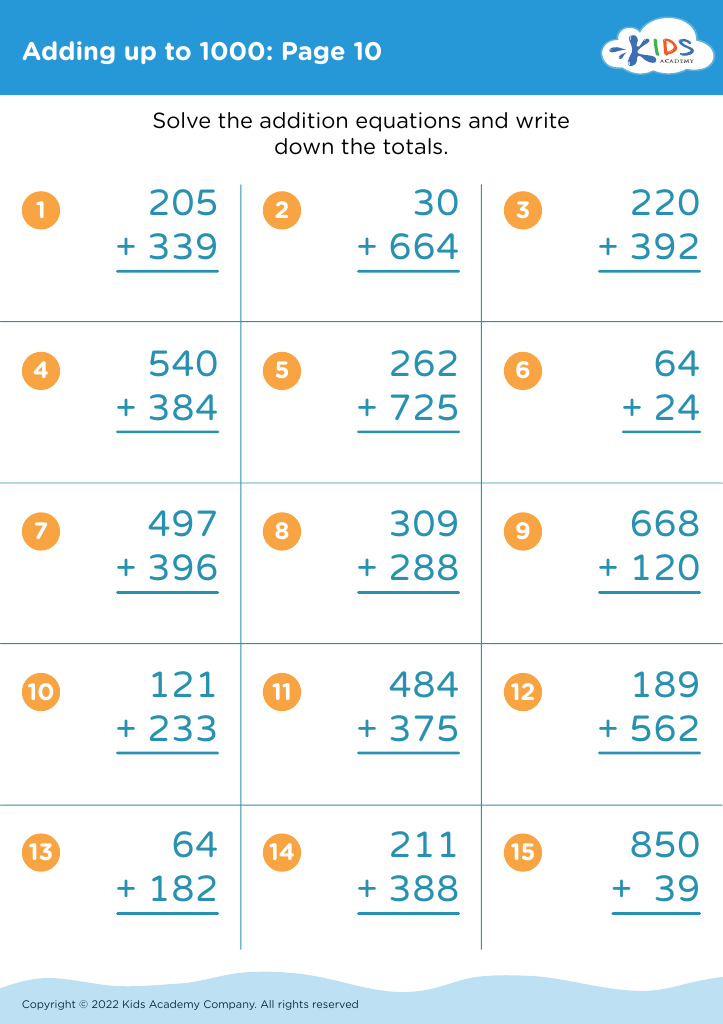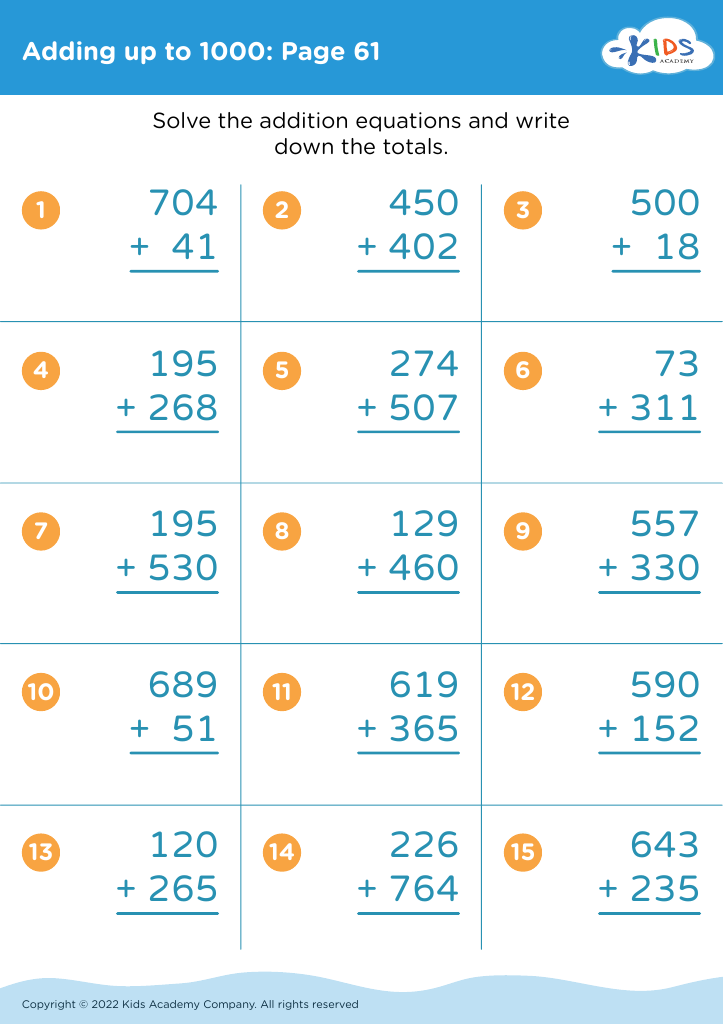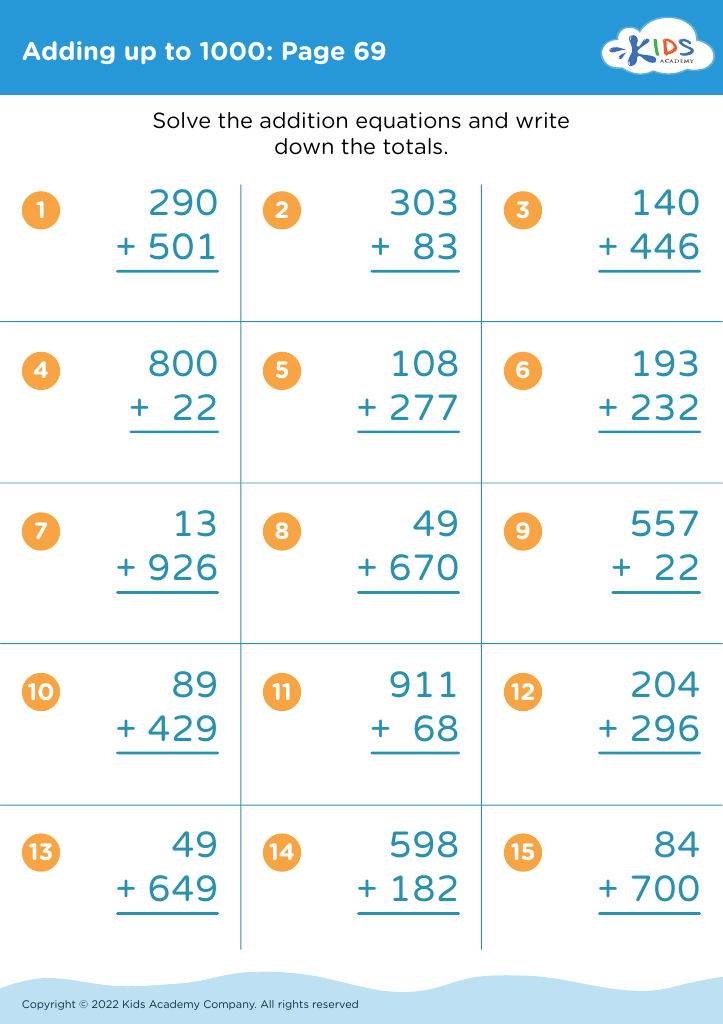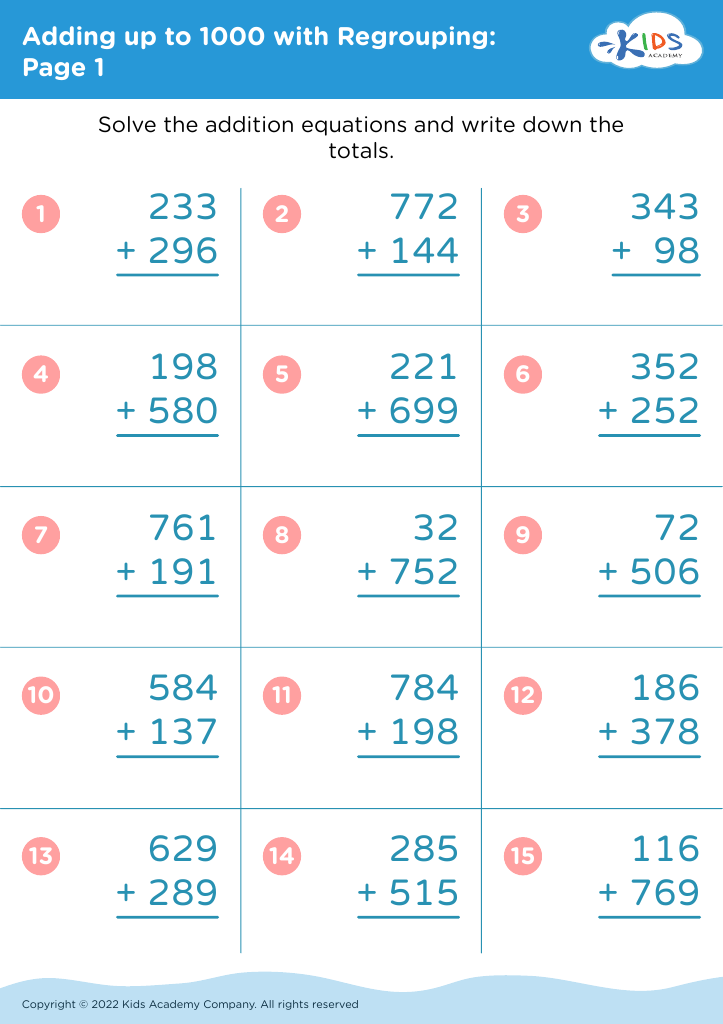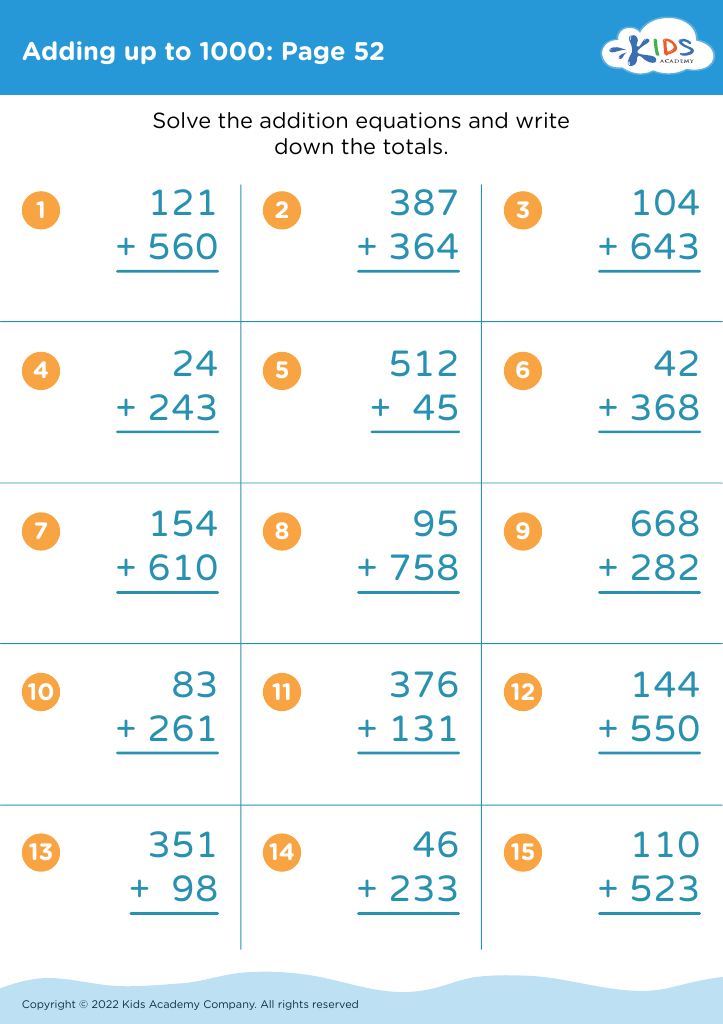Fraction simplification Adding up to 1000 Worksheets for Ages 3-7
7 filtered results
-
From - To
Unlock the magic of math with our "Fraction Simplification Adding up to 1000" worksheets for ages 3-7! Tailored to help young learners grasp essential math skills, these fun and engaging worksheets break down complex concepts into bite-sized packets. Kids will enjoy vibrant, interactive tasks that make learning easy and enjoyable. With guided steps and colorful illustrations, simplifying fractions and mastering addition up to 1000 has never been simpler. Perfect for preschoolers and early elementary students, these printables ensure a confident start to your child's math journey. Make math fun and effective with our expertly designed resources today!
Parents and teachers should care about introducing the foundational concept of fraction simplification and addition to children in the early grades (ages 3-7) as it establishes the groundwork for their future understanding of mathematics. Simplifying fractions and basic arithmetic practices laying down, foster critical thinking and problem-solving skills, crucial not only in mathematics but across all subjects and real-life situations. Early exposure ensures children become comfortable with numbers and mathematical operations, reducing anxiety or fear often associated with complex math later on.
Moreover, introducing these concepts in fun, engaging ways, such as using manipulatives or visual aids, helps children grasp abstract ideas concretely, melding learning with play. This also nurtures a positive attitude towards learning and curiosity, promoting lifelong intellectual engagement.
Having a firm grasp on fractions allows children to understand fair-sharing scenarios, proportions in everyday tasks (like cooking), and spatial reasoning. The success in these tasks can build confidence. Furthermore, educating children within these age ranges ensures they reach the levity in this subject by the prescribed milestones ensuring no knowledge gaps that might hinder advanced learning sought in higher studies.
Ultimately, incorporating early fraction understanding empowers the next generation with essential numerical literacy and a sharper academic incline.

